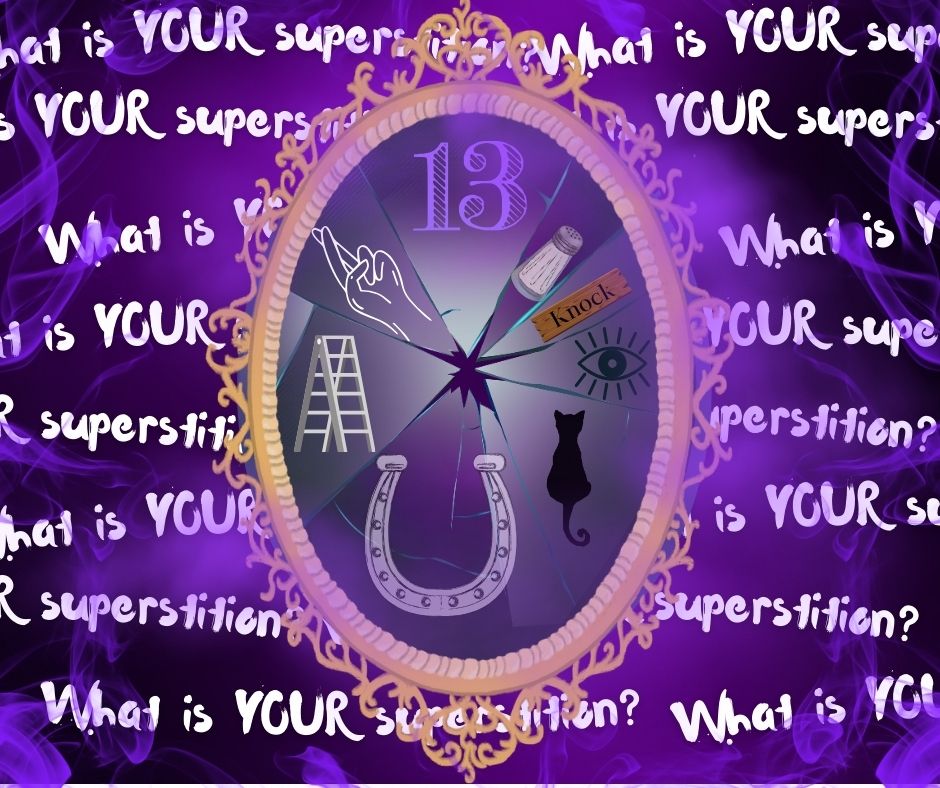At some point, everyone believes in something that to others may seem dumb. From tossing salt over your shoulder for good luck, to cursing yourself with bad luck by opening an umbrella inside, these examples of common superstitions across the world are seen as harmless beliefs. According to Merriam-Webster, superstition means “a belief or practice resulting from ignorance, fear of the unknown, trust in magic or chance, or a false conception of causation.”
Superstitions And Their Background
Differing across cultures and countries, many superstitions date back to the 4th century B.C.E. when it began as a concept using the Greek word “Deisidaimonia” or “scrupulous in religious matters.” Superstitions were recommended in religious practices until they started to seem negative, causing modern understanding of the belief to disorientate.
Superstitions can be found in everyday objects or things. For example, it’s believed by many in China that the color red and the number eight bring forth good luck and wealth, while in Russia people believe that putting empty bottles on the ground is considered good luck.
However, not all superstitions are based on good luck. For example, in ancient Rome, there was a belief that if a person broke a mirror they would get seven years of bad luck. This is because the Romans believed that mirrors were both a reflection of a person’s physical appearance and a window to their soul. Therefore, breaking a mirror was considered damaging “the portal to the soul.”
Opinions of Superstitions
Superstitions aren’t always accepted by the general public. Some view the idea of superstitions to be false regarding the fact that science doesn’t technically prove them to be true. Senior Ayse Celik is one of the many people who find superstitions fallacious or flawed. “I just don’t believe it’s real, it’s not proven or scientific to me so it doesn’t make sense to me,” Celik said. “I did believe in astrology signs, but grew out of that too.”
This does not mean Celik finds superstitions to be completely useless. Instead, she believes that it is good as long as it is not used to harm others. “I feel like superstitions if they give you hope and they help you it’s a good thing,” she said. “But, if it’s to hurt other people and yourself that’s bad.”
On the other hand, junior Lily Bridges has superstitions of her own. Her superstition consists of knocking on the roof of her car every time she goes through a yellow light. “I think that superstitions are kind of a personal thought,” Bridges said. “Overall superstitions aren’t real, but it just provides me some comfort to know that it’s out in the universe.”
Controversial Causes of Superstitions
While superstition seems like a harmless thing that simply brings forth hope in a person’s life, there can be some mental health problems regarding the topic. When created, superstitions offer a way for people to explain certain outcomes in life, like surviving an accident, in a way that makes people feel more in control.
However, it has been found that superstitions can cause or help further damage mental health issues like Obsessive-Compulsive Disorder (OCD). OCD is a disorder that is seen as fears or unreasonable thoughts (obsessions) that lead to compulsive behaviors. These behaviors can be seen as a fear of germs, for example, or arranging/doing things in a specific order. This can make people with this disorder become fixated with their own superstitions and it can be hard for them to let them go. The term used to describe this obsession is called “magical thinking OCD.”
This does not mean that superstitions cannot help a person. Many find new superstitions from others or create their own every day. For example, if you are a football fan, you may consider wearing a player’s jersey for good luck. In many cases, superstitions have been found to help soothe anxiety, for they are a way to prepare their brain for any possible outcome.
While some superstitions never go too far, it is important to understand that it can get far with people who have OCD. “I think that it is something that should be talked about,” Bridges said.
Whether a person is superstitious or believes superstitions to be false, superstitions can help or worsen other’s mental health, so they should not be ignored or rejected.

























![The Phoenix varsity volleyball team lines up for the national anthem. “We were more communicative [with each other] during this game, and I feel like we kept our energy up, especially after the first set,” senior Jessica Valdov said.](https://theblazerrhs.com/wp-content/uploads/2024/10/DSC_0202-1200x800.jpg)










![Junior Alex Alkhal pitches the ball. “[I] just let it go and keep practicing so we can focus on our goal for the next game to get better as a team,” Alkhal said.](https://theblazerrhs.com/wp-content/uploads/2025/05/DSC_0013-1-1200x929.jpg)






















